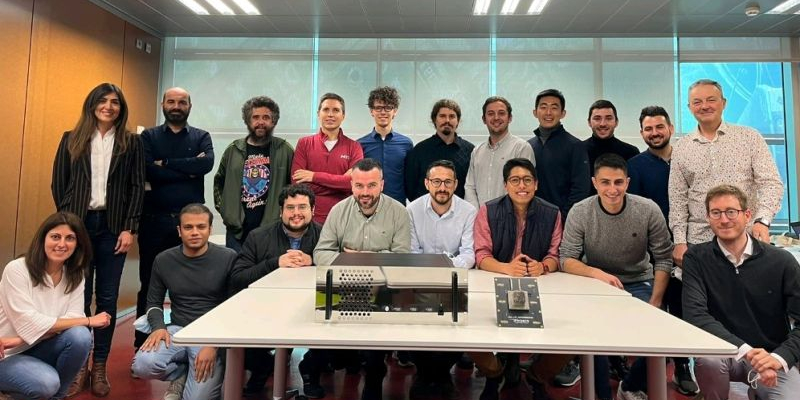
Quantum Computing is History! iPRONICS, a Valencia-based startup pioneering photonic computing company, has secured a €3.7M investment led by Amadeus Capital Partners, with participation from Caixa Capital Risc.
Building microchips with silicon is becoming old hat. With computer processing demands rising, and chip size shrinking, traditional semiconductors can’t always deal with the power and data needs of modern technology. Now, engineers are now starting to use light-based processors to get around the issue.
That technology, photonics, allows for the rapid processing of complex mathematical tasks that are used in advanced AI systems like self-driving cars. And the tech could get much cheaper and more accessible if startup iPronics gets its way.
Based in Valencia, the company has raised the €3.7m to develop and scale its photonics processor, which it says dramatically reduces the time and technical needs involved in building photonic systems.
Previously, the Spanish company raised €1M in funding from co-founder and tech entrepreneur Inaki Berenguer.
Other strategic angel investors back the company, including successful tech executives and entrepreneurs from Google, Facebook, Carto, Freshly, Endeavor, Oracle, Deloitte, Ferrovial, and Clicars.
Although advanced electronic chips like GPUs, TPUs, or FPGAs have increased their capabilities, they still cannot keep up with performance requirements, and today’s hardware has become the bottleneck.
As a result, computational photonics (i.e. photonic chips) is becoming the solution because it provides lower latency, lower power consumption (photons/light consume less energy than electrons), higher bandwidth, and higher density.
“We know that photonic computing is the answer to many of the bottlenecks of new killer applications, but designing and building one photonic chip for each of those applications is not practical,” says Prof. Jose Capmany, Fellow of the IEEE and Optical Society of America, and co-founder of iPronics. “Reconfigurability of photonic chips with software is the answer.”
As a spinoff of the Technical University of Valencia and beneficiary of an EIC Transition Grant, has introduced a new generation of photonic circuits where standard hardware can be programmed using software for various applications through a mesh of on-chip waveguides and tunable beam couplers.
To date, the company has developed seven technology patents and published at least four seminal papers in the journal Nature.


